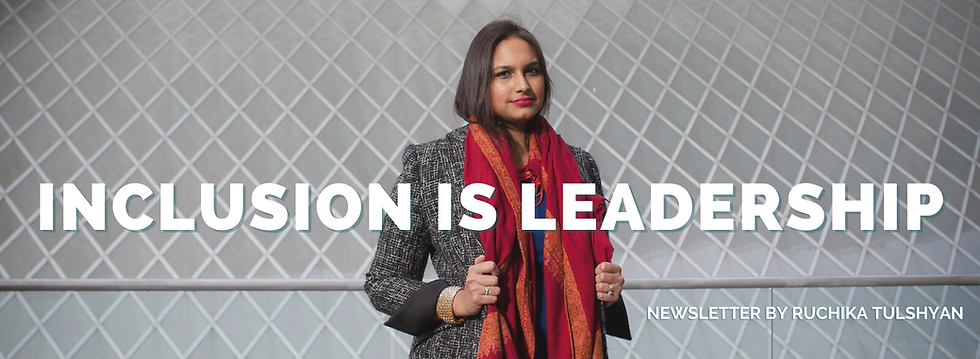The Hidden Bias in Rescheduling Meetings
- Ruchika T. Malhotra
- Jun 15, 2021
- 3 min read
Updated: Jan 19, 2022

Last week, I had to reschedule a meeting at the last minute. I went back and forth about the reason to give–it was sudden enough that I felt it was necessary to explain.
Should I admit my son was sick and I had to keep him home from school? In the past I know I’ve judged women with childcare responsibilities, before I had my own (not among my proudest moments in life, by a long shot).
I knew the person I was meeting was expecting a child, so, after some mental calculation and deciding that this person would likely not judge my professionalism for sharing childcare woes, I did.
Side note: I am just as outraged as you that this mental calculation has to exist but in a society where there’s ZERO mandated paid maternity leave (forget paid caregiving leave) and 1 in 4 American mothers go back to work 10 days after giving birth, the anti-working mother sentiment is deep.
Anyway, I also wrote: “I wouldn’t share the reason if I didn’t know you were expecting a child. We know prevailing gender biases would mean I may be perceived as less committed or competent, even by women, even by other mothers.”
(Women are just as susceptible to gender bias as men, according to research. I’ve met a number of working mothers who experienced discrimination from other working mothers too.)
She responded: “I’ve worked with men for years and I started noticing they never give a reason for rescheduling. Just: ‘I can’t make it. Does X time work instead?’ So I started doing that professionally and even personally. I just say, ‘thanks for inviting me, I can’t make it.’”

Wow. I have so many thoughts:
1. People shouldn’t be expected to give a reason to reschedule. More women are socialized to offer a reason as we’re expected to justify what could be more important than attending said meeting, but why should we?
2. I would really like to see a change around the motherhood penalty. Women should not be penalized for being visible mothers.
3. Paired with a previous email exchange where someone ignored my unavailability due to struggling with my family being impacted by COVID in India, maybe this will mean I only share reasons with people who are close enough to offer support or empathy. When I reflected more on why I chose to share such a personal reason with someone I'm not close to, I realized I succumbed to the familiar pressure of not wanting to appear ungrateful for declining an opportunity without sharing a solid reason. Sigh. Yes, I have work to do like anyone else on this.
4. Most of all, inclusive leadership demands us to normalize sharing and choosing not to share. On one hand, we should not expect people, especially women, to owe a reason for unavailability. On the other, inclusive leaders must normalize when women (or anyone!) cite caregiving reasons for unavailability, rather than penalize us and perceive us as less committed or competent.
I’m going to start trying out the no-reason reschedule for size. I’ll report back how it goes.
Do you offer a reason for rescheduling or being unavailable for professional meetings? How about personally? Do you mention if those reasons are caregiving-related?

.png)
Commentaires